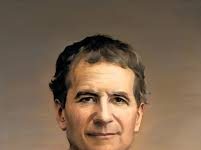For my house shall be called a house of prayer for all peoples (Is 56:7).
The prophecy of Isaiah is fulfilled in our hearing. The sacred assembly (synaxis) of the Church, universally and locally is always sacramental; that is to say, it is a sign of the Church as the sacrament of unity. Any assembly of the faithful, be it small or great, is always a participation in the unity and universality of the Church. The vision of the Prophet Isaiah alludes to our understanding of the Church as a sacrament of unity. “God has gathered together as one all those who in faith look upon Jesus as the author of salvation and the source of unity and peace, and has established them as the Church, that for each and all she may be the visible sacrament of this saving unity” (Lumen Gentium, 9). Just as Jesus, Way, Truth and Life is our way to the Father, so the Church in which our Lord is present performing His saving work is the way that leads us to God. Since God cannot be seen or heard directly, He conveys His summoning Word and inviting sign in a form that is audible, concrete and visible. This is what the Church is.
It is noteworthy that the Prophet describes this house of God as a “house of prayer for all peoples” (Is 56: 7). The universal nature of this invitation is evident. What is perhaps more difficult to grasp is the description of this dwelling as a house of prayer. Yet this brings us to the very heart of our existence both here and in eternity for humanity’s goal is to reach God in order to be engaged in a blessed dialogue with Him for all eternity. We are created and constituted for dialogue. Though we communicate in different ways, we do so principally with words. In describing His house as a house of prayer, we are given to understand that the function most suited for the gathering of the faithful in a church is conversation with God. This is the essence of prayer, conversation with God. In the great commission which concludes the Gospel of St. Matthew, our Lord commanded His disciples to “go therefore and make disciples of all nations, baptizing them in the name of the Father and of the Son and of the Holy Spirit, teaching them to observe all that I have commanded you; and lo, I am with you always, to the close of the age” (Mt 28:19). The nature of this commission entails dialogue and freedom, growth and intimacy.
The Church has never imposed the Gospel by force. Authentic Christian discipleship is a free response and embrace of the Cross leading to a participation in its mystery. “Whoever does not carry his own cross and come after me cannot be my disciple” (Lk 14:27). If we consider these words in the context in which they are spoken, we see that our Lord further explains that we must also be willing to sacrifice whatever is necessary to preserve our faith. “In the same way, anyone of you who does not renounce all his possessions cannot be my disciple” (Lk 14: 33). The all or nothing quality of this proposition brings home to us both the demands of Christian discipleship and the power of its witness when it is authentic. Daily now, we hear of Christians being martyred in what is called the Islamic State for refusing to renounce their faith; of entire families executed for refusing to renounce their faith in Jesus Christ, our Lord and Saviour. Of course, they are not alone in suffering persecution. Other religious minorities, including a people known as Yazidis are being slaughtered for refusing to submit to Islam.
If we wish to understand what is taking place and why, we must be clear about this submission for this is the literal meaning of the word Islam. A muslim, by his own definition, is literally one who has submitted. What the world is witnessing with horror, if truth be told, is an expression of the very nature of the Muslim faith. St. Juan de Ribera (+1611), whose ministry included the evangelization of Muslims, noted that Mohammed, the prophet of Islam “had neither supernatural miracles nor natural motives of reason to persuade those of his sect. As he lacked in everything, he took to bestial and barbaric means, which is the force of arms. Thus he introduced and promulgated his message with robberies, murders and blood shedding, destroying those who did not want to receive it, and with the same means his ministers conserve this today (Catechismo para la Instruccion de los Nuevos Convertidos de los Moros; 1599). Those seeking to impose the rule of Islam in Iraq, Syria, and elsewhere are assuredly faithful to Mohammed’s example. The facts speak for themselves. We can no longer afford to dissimulate the truth about Islam. At a deeper level, moreover, this act of submission that Islam dictates and demands violates our human nature at both the intellectual and spiritual levels. Setting aside the fact that Islam makes no allowance for secondary causes or what we might more easily understand as free will, the dialogue of prayer classically understood as a dialogue or conversation with God would appear to be impossible in the Islamic paradigm of faith and life.
It is significant that the vision of Isaiah is a vision of universality: “And the foreigners who join themselves to the Lord, to minister to him, to love the name of the Lord and to be his servants, all who keep the Sabbath…these I will bring to my holy mountain, and make them joyful in my house of prayer” (Is 56:6-7). These words are fulfilled in the communion that is the Catholic Church. There are in the Church seven different rites or ecclesiastical traditions that determine how the sacraments are to be celebrated. As the early Church grew and spread, she preached the Gospel in the major cultural centre of the time. These centres were Rome, Antioch in Syria, and Alexandria in Egypt. All the rites in use today have their origin in the liturgical practices and ecclesiastical organization used by the churches in these cities. The churches of Alexandria and especially of Antioch are now experiencing a violent persecution and the world is now witnessing the genocide of ancient Christian communities. The stated goal of Islamic terrorism is the imposition of totalitarian Islamic law. The submission that is being violently imposed allows for no freedom of expression or of conscience. We must have the courage to speak the truth especially in the politically correct environment that we have created through our cultural and moral relativism because dissimulation about Islam is fuelling genocide in the Middle East.
In the midst of all this, our faith compels us to pray for our enemies and even to do good to those who are persecuting us. The scope of our prayer is limitless just as the scope of the Church’s charity is universal; because the scope of God’s salvific will is likewise universal. The Canaanite woman, a foreigner, pleaded with our Lord for her daughter’s life and our Lord granted her request. “Have mercy on me, Lord, Son of David” (Mt 15:24). We hear in her voice the plea of those suffering persecution; Christians, Jews, Zoroastrians, Yazidis, and even Muslims, for the majority of victims of Islamic intolerance are Muslims. Our prayer embraces all of them as does our charity. “These I will bring to my holy mountain, and make them joyful in my house of prayer … for my house shall be called a house of prayer for all peoples” (Is 56: 7). The Church of Christ, the Catholic Church, embraces all the families of the peoples, and the Eucharist which makes us one with Christ our Lord conforms us to His image on earth (Prayer after Communion, Twentieth Sunday Per Annum, The Roman Missal). Many of our brethren are now being conformed to His crucifixion. May our charity and union with them be for them and for all who suffer a sign of hope and consolation.
Photo: Photobucket.com.











